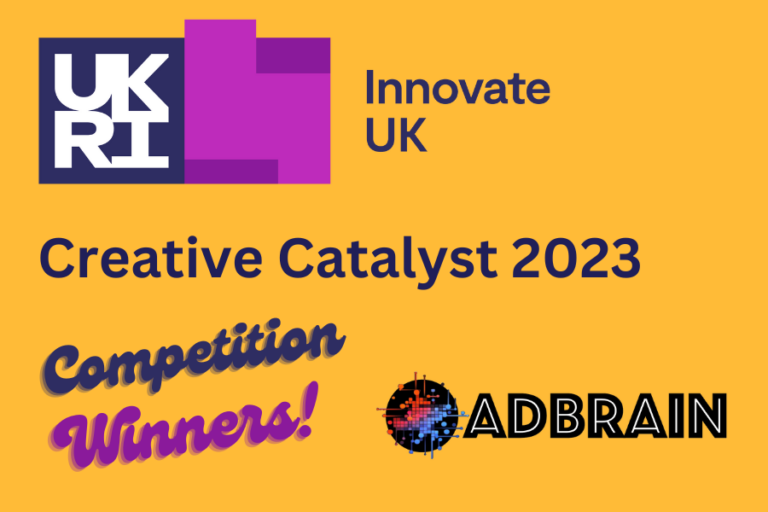AI is one of the biggest innovations of our times. It has the greatest disruptive power, and is in the process of remaking entire industries. Over time it will impact every domain of our lives and change how we work, live and function as a society – likely beyond recognition. It will also impact your business, and only a robust AI strategy will guarantee that you navigate this change successfully, emerging from it as a winner.
In the times of such dramatic change businesses face unprecedented challenges, with incredible opportunities on the one hand, and significant threat of disruption on the other.
As it proved to be the case with the adoption of digital and software technologies, the business world will be divided into winners – who increasingly take all – and losers who were too slow to embrace the changes, or lacked the vision and skills required to adapt and thrive in the new reality.
As with the software revolution, the results of innovation will not be immediately visible, but at some point the scale of damage done to laggards who were too slow to embrace it will be evident and prove insurmountable.
The key difference is that the AI revolution will be even faster and more dramatic, creating an elite class of ultra successful winners, leaving the losers far behind.
The scale of this challenge for businesses is truly daunting. The growing lack of tech skills and ever increasing complexity of the business and technology landscape means that it is very difficult to know what actions businesses should be taking to ensure their future success – or at least survival – and the path to implementation is all but clear and easy. It is even difficult to know where to start.
Yet, doing nothing is not an option.
Nor is a blind drive to adopt whatever AI du jour is becoming a new sensation and taking the world by storm this week, just to feel good about being amongst those using the latest technology fad.
Everyone’s blindly following the herd
The problem is that blind adoption of random AI technologies in selected parts of your business is not going to safeguard you from the changes, and less so secure your position as a leader in your space.
This is because there are a multitude of ways that you could be using the technology to improve your business, align with the future, and outperform your competitors. At the same time there are many variations of AI that you could (and should) be using.
The current craze is Generative AI, a subset of the field of Artificial Intelligence (AI) based on Large Language Models (LLMs) that are able to generate passable quality text documents, images, audio and even video, based on a massive scale of their databases (embedded in their AI models) of similar content generated previously by the collective effort of humanity.
Those generative AI models have some fantastic applications and can support and even replace a wide range of tasks performed so far by human workers, especially when it comes to tasks that require limited skills, creativity or inventiveness – tasks that (even if based on complex knowledge, like in the case of legal or financial documents) are mundane and repetitive.
Having an AI model that is able to take over the work of multiple people and perform it to a standard that is comparable, as good as, or even better than humans, but much faster and more predictably at the fraction (of a fraction) of the cost is a temptation that businesses cannot resist or afford to ignore, especially when their competitors who embrace it will soon become cheaper and more efficient. This is not a risk any business leader with foresight can tolerate and observe materialising in front of their eyes.
Large Language Models (LLMs) are all the rage
LLMs, such as OpenAI’s ChatGPT, are currently all the rage. Other models such as Dall-E and Midjourney for images are also getting a lot of attention. There are many ways in which those are immediately useful and are already used to augment efficacy and performance of operations in fields that are heavily reliant on text and imagery, and where automation of some of the generative processes can lead to greater scale, efficiency and quality. Examples of this are numerous with applications including processing of information, generation of documents, creation of marketing content (with on the fly personalisation), intelligent chat bots, and many more.
Everyone has now heard about those generative AI models and is in a race to put them to use in their operations. But, paradoxically, the overall level of Artificial Intelligence awareness has not increased by much, with many business leaders equating AI with LLMs or, how I like to put it, being blindsided by them.
The reality is that LLMs will soon be used by everyone and will improve many areas of business operations. But this will not give you any advantage, because everyone else will also have the same exact tools. The process of adopting the LLMs is akin to chasing a rabbit, without really getting ahead to catch it.
What not all business leaders – or maybe even only a few of them – are aware of, is that LLMs are just a narrow subset of available AI models and applications, many of which are better suited to fundamentally alter and improve the quality, scale and economies of your business operations.
A wiser way to starting AI adoption
This is why it is a much wiser approach to start with a thorough analysis of the areas of your business where AI can bring significant improvements (and there are many!) and a careful matching of those with the available AI technologies, methods and models, before committing to actions that may sound and feel good, but do not guarantee a lasting competitive advantage.
A thorough and informed review of your AI readiness and possibilities – to formulate an AI strategy and adoption roadmap – is the only way to ensure that your investments lead to the outcomes that will justify the efforts and secure your business for the future.
Of course, to perform such an analysis and formulate a winning AI strategy, you will need to work with experts who can understand both your business and have a deep expertise in AI technology and the various ways in which it is adopted across the different industries.
AI experts, such as the AI Consulting Team at AdBrain, can and will analyse your operations, assess the potential and readiness of your processes for AI, and create a detailed, actionable, step-by-step plan of adoption. They will provide you with a clear breakdown of benefits, costs, risks and opportunities and other considerations, to give you visibility, understanding and enable you to make informed decisions regarding the best areas for your investment in AI technology.
Time is of the essence
With changes happening all around you at a breakneck speed, and many of your competitors already creating and putting their plans in motion, it is not the time to wait and think about adoption of AI strategy and technology in your business. It is the time for action.
But not blind action that is associated with large financial outlay, unmitigated risk and uncertain results.
The first step is to gather the information you require to make informed and accurate decisions that will secure your business for the years to come. The cost and risk of this first logical step is comparatively low, and there are no reasons to be afraid of and delay it any longer.
And we are here to help you with the expert advice you need to determine the best course of action for your company.
Act today, and get in touch with us to get completely free, competent and friendly initial advice and discuss your business in a non-committal way, with no strings attached.
If, after this initial consultation, you’d like to proceed with a further analysis of your operations and preparation of a detailed AI strategy, you will not find better experts than our Enterprise AI Team at AdBrain. We will be delighted to help, and will do this in the most thorough, competent and responsible way focused solely on your needs!
Read more about our approach to AI Strategy, and what else we can do for you on our Enterprise AI services page.
Or talk to us today via our Contact us page.
We look forward to hearing from you.
Best of luck with all your endeavors!




